Iran’s Sunni Leader Confirms Rape Of 15-Year-Old Girl By Police Commander
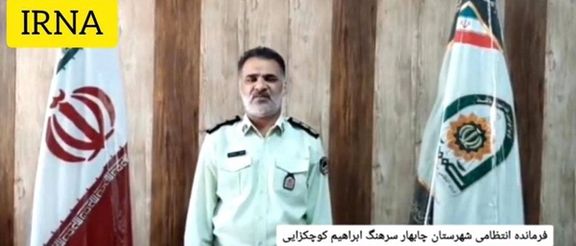
A leading Sunni cleric in Iran, sometimes critical of the government, has implicitly confirmed reports about the rape of a 15-year-old girl by a police commander.

A leading Sunni cleric in Iran, sometimes critical of the government, has implicitly confirmed reports about the rape of a 15-year-old girl by a police commander.
Molavi Abdolhamid, the religious leader of Iran’s largely Sunni Baluch population living in the southeastern province of Sistan and Baluchestan referred to the incident during his sermon on Friday, describing it as “the incident,” without elaborating the names and the details of the case.
Haalvsh website, a local news outlet, first reported the rape earlier in September but the case was buried, and no investigation took place to follow up the case.
Colonel Ebrahim Khouchakzai, the commander of the police in the city of Chabahar, allegedly raped the 15-year-old girl when he was investigating a murder case in one of the neighborhoods of the city. Apparently, the girl was the daughter of one of the neighbors of the murdered woman and Khouchakzai took her to his office for questioning and raped her.
The girl came back home and told her mother that the colonel stripped her clothes off under the pretext of checking her body and then raped her.
According to the latest reports, the police forces of the city have taken hostage three relatives of the rape victim to force her family to publicly deny the reports and promise not to file complaint against Colonel Khouchakzai.
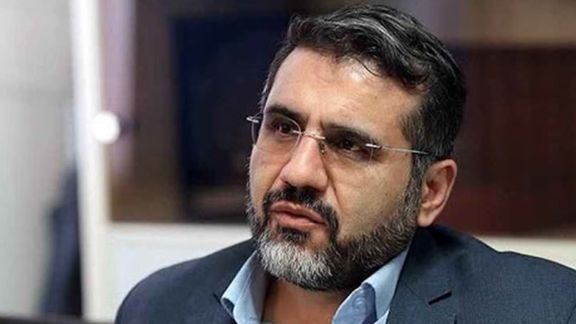
Iran’s culture minister has said that Iranian actresses who have unveiled in public or social media in support of hijab victim Mahsa Amini can no longer continue their careers in acting.
Mohammad Mehdi Esmaili said on Saturday that the female actresses who removed compulsory hijab made a decision not to follow the rules, therefore they cannot engage in artistic activities.
"They can freely do other jobs," he added, noting that “if someone insists on not obeying the laws of the Islamic Republic, we do not insist on forcing them to do so.”
He made the remarks as over 100 Iranian actors and filmmakers issued a statement on Saturday, calling on military forces to take down their weapons and "return to the arms of the nation."
"Once again, we remind all the people who have become agents of repression and violence against the people in the military units that these rifles were provided to them with public funds to defend the people. Do not point guns at the people and youth of Iran," they wrote.
Even before the start of unrest over the death of Mahsa Amini, the 22-year-old girl who died in hands of hijab enforcement patrols, the Islamic Republic’s security apparatus has increased pressure on the signatories of a statement against Iran’s crackdown on popular protests to rescind their signatures from another similar statement.
More than 100 film industry figures issued a statement in May titled “Lay down the gun,” calling on military and security forces who “have become tools for cracking down on the people,” not to suppress protesters during popular demonstrations.
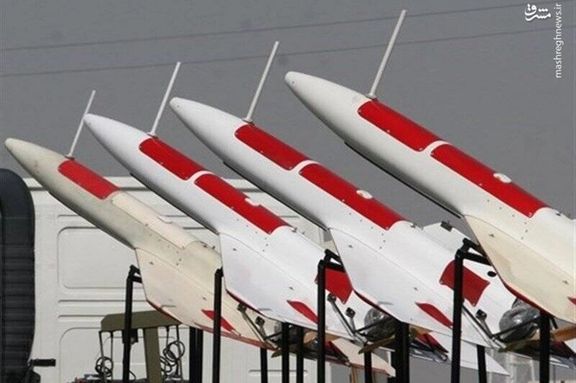
Ukraine Friday downgraded diplomatic ties with Iran for supplying Russia with drones, a move President Volodymyr Zelenskiy called "a collaboration with evil".
Zelenskiy said a total of eight Iranian-made unmanned aerial (UAVs) vehicles had been shot down so far in the conflict.
US National Security Adviser Jake Sullivan warned in mid-July that Russia was preparing to acquire military drones from Iran. Later reports indicated a Russian delegation visiting Iran and assessing the potential of Iranian drones in its war in Ukraine.
In mid-August, Iran’s Revolutionary Guard, that controls most of the drone force, confirmed “joint exercises” with Russia in deployment of UAVs.
Iran indirectly denied American and Ukrainian accusations, claiming it was neutral in the war, but its ruler Ali Khamenei in a meeting with visiting Russian President Vladimir Putin praised his invasion of Ukraine as a justified act against the West.
"Today the Russian army used Iranian drones for its strikes. ... The world will know about every instance of collaboration with evil, and it will have corresponding consequences," Zelenskiy said in a late-night video address.
Military authorities in southern Ukraine said in a statement they had shot down four Shahed-136 "kamikaze" unmanned aerial vehicles over the sea near the port of Odesa on Friday.
The air force said separately that for the first time it had brought down a Mohajer-6, a larger Iranian drone, the Ukrainska Pravda newspaper reported.
The Ukrainian foreign ministry earlier said the supply of drones had dealt a serious blow to bilateral relations.
"In response to such an unfriendly act, the Ukrainian side has decided to deprive the ambassador of Iran of his accreditation and also to significantly reduce the number of diplomatic staff of the Iranian embassy in Kyiv," it said in a statement on its website.
The message was handed to the acting ambassador since the permanent envoy, Manouchehr Moradi, is not currently in Ukraine.
The Ukrainian military said earlier this month that an Iranian drone destroyed a US M777 howitzer provided to Ukraine. A report by the Wall Street Journal said that the Iranian drones were doing some damage to Ukrainian forces and Western military analysts have said that they can impact Kyiv’s war plans.
The issue is a challenge to the Biden administration that has been negotiating with Tehran to revive the Obama-era nuclear accord known as the JCPOA that former President Donald Trump abandoned in 2018.
Although negotiations are now deadlocked, but a new deal would lift key economic sanctions on Iran and provide tens of billions of dollars in financial relief that can enable Tehran to expand its military hardware and open a back door for Russia to circumvent Western sanctions.
Military experts say the drones would be useful to Russia for both reconnaissance and as loitering munitions that can bide their time in locating and engaging suitable targets.
In August, a senior U.S. administration official said Russia has faced "numerous failures" with Iranian-made drones acquired from Tehran.
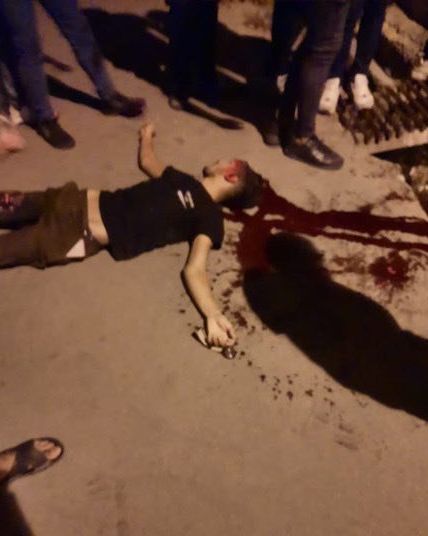
The police chief of the northern province of Gilan says security forces have arrested about 740 people in the ongoing unrest during the last week, suggesting that the number is much higher across Iran.
Azizollah Maleki said in a press conference on Saturday that these people were detained because they disturbed the public order, adding that at least 60 of them are women who were arrested in the past three days.
He added that “a group of saboteurs” was also identified and two of them have been arrested so far.
He claimed that a large number of the arrested people are not locals and entered Gilan for rioting and vandalism, and many firearms and cold weapons were also seized from them.
Most of the arrested people are young but many of their leaders have criminal records, he alleged, saying that some of them were arrested and some were identified and will be arrested in the coming days.
The number of people who have been arrested during the past week’s protests is definitely higher, but authorities rarely announce large numbers of arrests. Almost all over the country, people are holding daily protest rallies following the death of Mahsa Amini, the 22-year-old woman who died of a severe head trauma caused by several blows to her head by the hijab enforcement patrols.
While the government in Iran seems incapable to stop fierce protests, hardliner religious leaders on Friday doubled down on enforcing hijab for women.
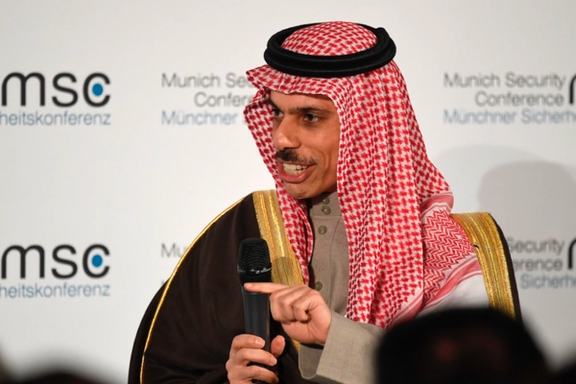
Saudi Arabia's foreign minister said on Friday that there is little optimism for the fate of negotiations to restore the nuclear deal between world powers and Iran.
Speaking on the sidelines of the UN General Assembly in New York, Prince Faisal bin Farhan said his country had concerns about a possible revived nuclear deal, especially over IAEA inspections. However, he said that even a flawed deal was better than no deal.
“We are hopeful that there is still potential for progress of the negotiations. But unfortunately, the signs, as of now, are not positive,” he said.
He added that there were still differences with Iran that currently prevent him from meeting with his Iranian counterpart, but said "we certainly have the intent to build a positive relationship with our neighbors in Iran".
Iranian drone technology poses an increasing threat to the Middle East, bin Farhan said and stressed the importance of cooperation among regional countries to confront the matter.
“The short-term approach must be based on building capacity to face existing risks,” he explained, adding that “Meanwhile, the long-term approach requires cooperation to understand threats and construct frameworks for an action plan that could help in building future technologies for confronting this danger and protecting ourselves and our partners from it.”
A meeting of the Persian Gulf Cooperation Council plus Jordan, Iraq and Egypt (GCC+3) was also held in New York on the sidelines of the General Assembly. The GCC+3 meeting, hosted by US Secretary of State Antony Blinken, was “very good” and followed up on President Joe Biden's visit to Jeddah in July, Prince Faisal added.
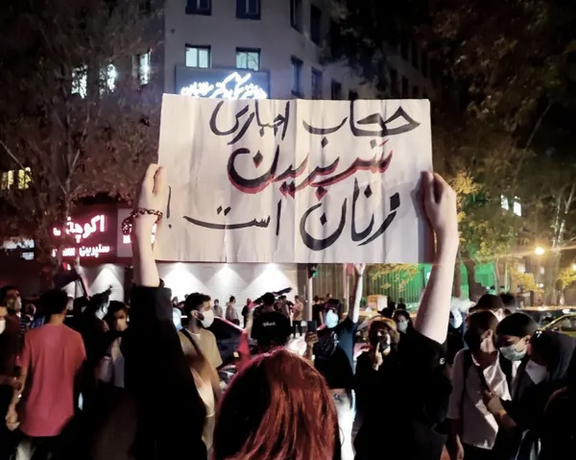
A group of independent UN human rights experts has condemned the death of 22-year-old Mahsa Amini, who died in police custody following arrest over “an improper hijab”.
“The experts also denounced the violence directed against peaceful protesters and human rights defenders demanding accountability for Amini’s death in cities across the country by Iranian security forces,” read a statement issued on Thursday.
“She is another victim of Iran’s sustained repression and systematic discrimination against women and the imposition of discriminatory dress codes that deprive women of bodily autonomy and the freedoms of opinion, expression and belief”, the experts added.
Urging the Iranian authorities to avoid further unnecessary violence and to immediately stop the use of lethal force in policing peaceful assemblies, they “strongly condemned the use of physical violence against women and the denial of fundamental human dignity when enforcing compulsory hijab policies ordained by State authorities.”
They also called on the Islamic Republic to hold “an independent, impartial, and prompt investigation” into Amini’s death, and make the findings of the investigation public and hold all perpetrators accountable.
Amid a near total internet shutdown, news and videos of protests in Iran have started to trickle out at a slow pace, showing demonstrations in several cities on Friday.
Iran's state TV aired footage on Friday of pro-government rallies in Tehran and elsewhere, staged to show its popularity, amid ongoing fierce opposition protests.